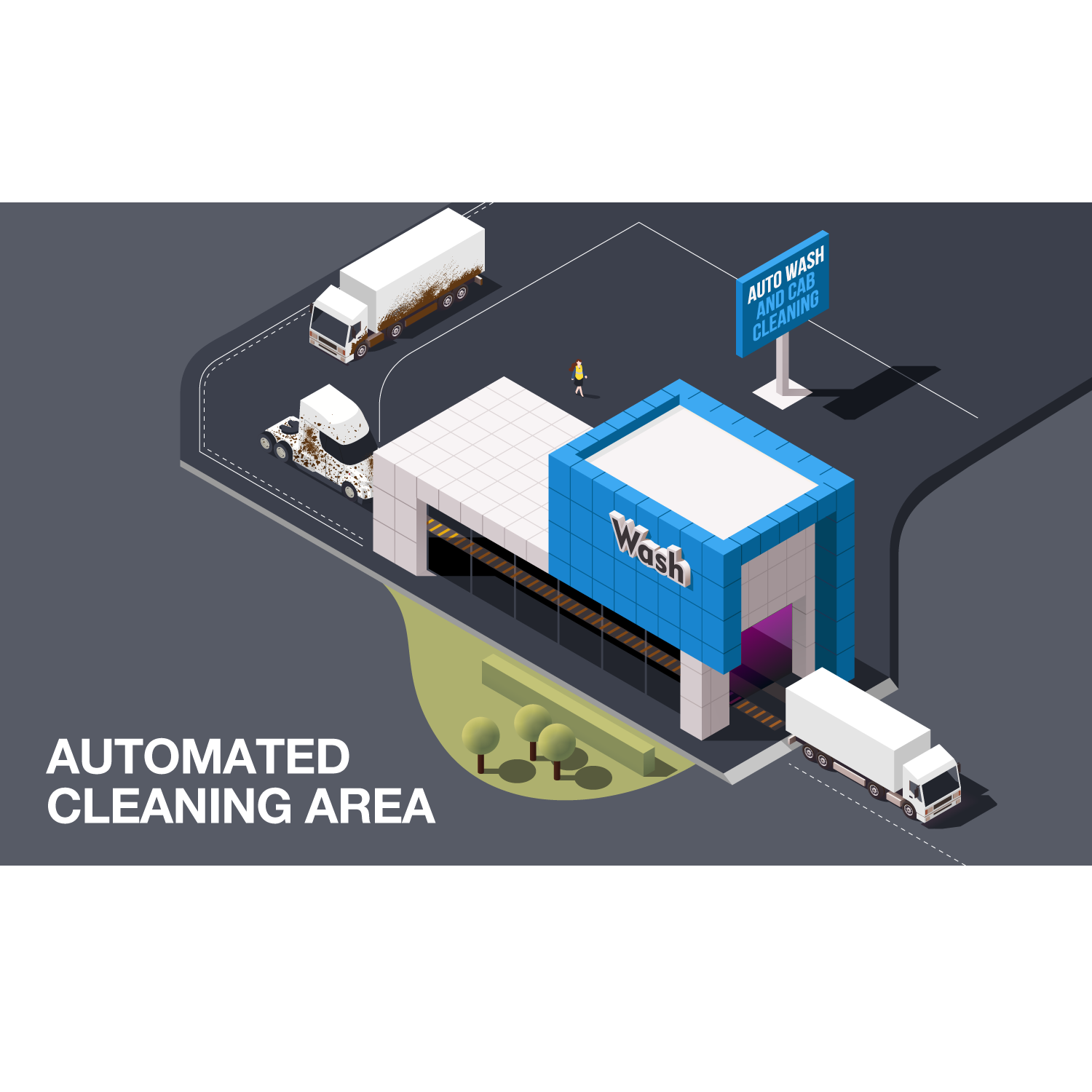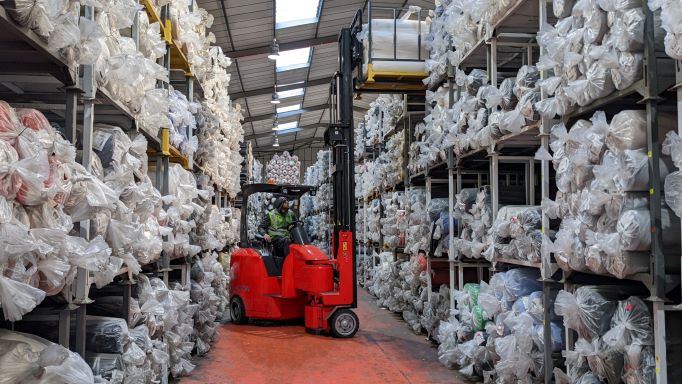Around one million Britons are currently isolating with COVID-19, causing a staffing headache across many industries, including haulage and logistics. SNAP, one of Europe’s leading smart payment solutions provider for lorry drivers and fleet operators, has revealed the potentially game-changing automated technologies that could help to overcome the challenges of a diminished workforce.
Getting under the bonnet of an automated future, SNAP has conceptualised Truck Park 2049 – illustrating how new capabilities and efficiencies could be created in haulage to ease the demand on drivers.
Emma Westwood, Commercial Manager for SNAP, said: “Without knowing when the pandemic will end, or how much longer businesses will have to endure the current shortages, automation and digitisation have a bigger role to play than ever before. Doing more with less could be an ongoing battle for businesses, so by highlighting some of the exciting and progressive technologies that are being developed, we’re helping to paint a picture of how this could be achieved within the haulage industry; a sector at the heart of the British economy.”
Self-driving trucks
SNAP predicts that advances in automation will make it much easier to multitask at truck parks. Upon arrival, drivers will be able to leave their self-driving trucks. Artificial intelligence will then guide the trucks through services before parking in a designated spot, ready for the drivers to collect. This will free up drivers to eat, rest or perform other jobs, allowing them to use their time more efficiently.
With the rise in automated vehicles, SNAP expects the human driver’s role to increasingly focus on maintenance. Diagnostic machines will become an important feature of new era truck parks, providing drivers with the information and support they need to conduct minor repairs, perform upgrades and optimise their vehicles for maximum efficiency.
Recognition of needs technology
Smarter still, automatic recognition of needs technology – combining analytics and data tracking – will notify truck parks of the services required for each driver; for example, charging, engine maintenance, cleaning, or driver rest. This will create a tailored experience for each driver that streamlines each visit.
Westwood continued: “We are already witnessing the rapid acceleration of automation technologies. Rather than replacing human jobs, we believe that these developments will assist in the efficient delivery of work and reduce the time and resources required for operational tasks, thus allowing staff members to optimise their workloads. This will help to ease the pressure caused by staff shortages. In the haulage industry specifically, this will assist in securing and speeding up supply chains and aiding the smooth running of all the businesses we serve.”
SNAP Account’s smart payment system for truck parks is just one example of automated technology that is already making a difference to the haulage industry by allowing fleet operators to digitally manage their businesses more efficiently, safely and effectively.
Westwood added: “Now is the perfect time to look ahead and see how automated technologies can be harnessed to assist businesses in their day-to-day operations and with their long-term growth plans. Truck Park 2049 encapsulates what an automated future could look like and how it could benefit fleets and drivers.”







